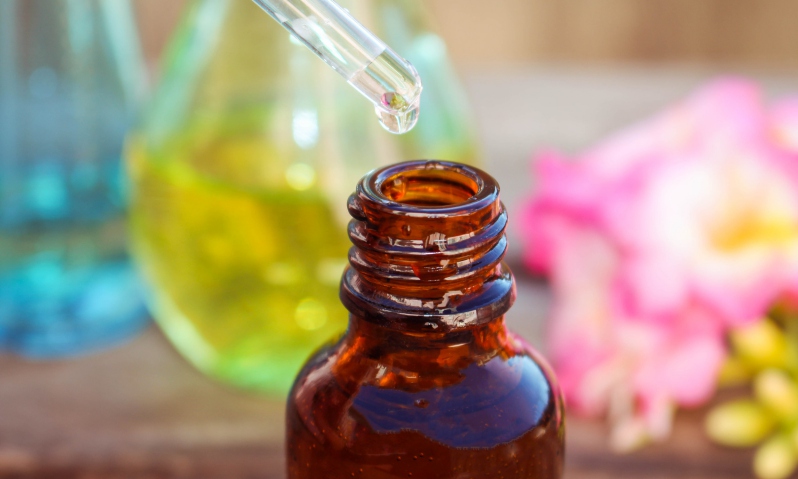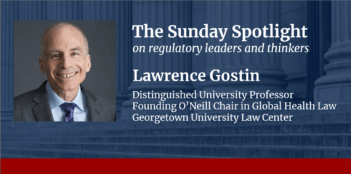
The structure of some essential oils companies makes it harder for federal agencies to restrain false claims.
Despite the availability of highly effective COVID-19 vaccines, many people look to unproven treatments for a cure—and some distributors of essential oils have claimed the coronavirus remedy lies in a dropper.
For years, the Federal Trade Commission (FTC) and the U.S. Food and Drug Administration (FDA) have challenged false representations about the medical efficacy of essential oils. But the emergence of the novel coronavirus has presented an increased need for protection against companies that claim their products could protect against diseases.
Yet meeting that need is made difficult by the contractual structures of some of the businesses that distribute essential oils. Specifically, government regulators find it difficult to monitor false health claims made by distributors involved in multi-level marketing companies, an arrangement where a parent company recruits individuals to earn commissions by selling products directly to their connections.
When COVID-19 shut down daily life in the United States, many people worried about becoming sick with a virus that had no known therapies. Some essential oil companies suggested that their products could cure COVID-19 even though they put forward no evidence to show that such oils could cure any illness.
At the beginning of the COVID-19 pandemic, FDA and the FTC sent warning letters to seven companies making deceptive claims about teas, tinctures, and essential oils. In April, the FTC sent warning letters to ten multilevel marketing companies, including essential oils companies, that made unfounded health claims about the efficacy of their products on treating COVID-19. Since March, FDA has issued at least ten warning letters to essential oils companies and the FTC has issued dozens of warning letters against companies making fraudulent health claims.
Essential oils are concentrated plant extracts that are typically packaged in small, glass bottles. Their use is not inherently deceptive. Medical experts have identified some productive applications for essential oils in aromatherapy. Johns Hopkins Medicine explains the use of essential oils may help manage medical conditions such as anxiety, depression, and insomnia. The Mayo Clinic suggests that aromatherapy can help stimulate parts of the brain that control emotion. But it also warns that essential oils are not regulated by FDA and that not all of them are safe.
The pandemic inspired fraudulent health claims by a wide variety of businesses claiming to sell vitamins, herbs, and other therapies that supposedly combat COVID-19. In particular, many multi-level marketing companies seized on the virus as a way to make a profit. Although 99 percent of people who join a multi-level marking company will eventually lose money, some companies targeted financial anxiety to recruit new members.
Members are often classified as “independent distributors” who sell products by larger companies. A core problem with multi-level marketing companies from the regulator’s perspective is that the independent consultants who sell their products can make their own health claims on social media, even if the parent company’s website is devoid of such claims. So many distributors across many platform forms exceeds the oversight ability of government agencies.
COVID-19 is the latest health crisis to prompt FDA and the FTC to take action against multi-level marketing companies that allow independent distributors to make deceptive health claims. In 2014, FDA warned two multi-level marketing companies, Young Living and doTERRA, about false claims they and their distributors made about the Ebola virus. Recently, some distributors of those same companies have claimed their products were proven to be effective against corona viruses.
Not every company that makes deceptive claims about essential oils and COVID-19 is a multi-level marketing business. Independent consultants that distribute products, however, pose a challenge for government regulators who seek to bring essential oils companies into compliance with advertising and health regulations. With multi-level marketing companies, independent distributors can make deceptive claims about products without significant oversight from their parent companies.
When the FTC or FDA has warned companies about claims that appeared on their own websites, those claims have been taken down. For multi-level marketing companies, thousands of distributors are able to make claims across platforms and through private messages. These methods are unlike company websites because claims are decentralized, plentiful, and impossible for the FTC to monitor.
In a speech, FTC Commissioner Noah Joshua Phillips stressed that representations by independent distributors, and not just companies themselves, must be truthful. Phillips added that companies must both instruct their distributors not to make false claims and must also monitor these distributors for false representations.
As the pandemic continues and infection rates increase, opportunities for predatory and deceptive health claims continue. Some companies such as Young Living have reportedly instructed their distributors to alter promotional language to remain compliant with FDA regulation. But as independent distributors turn to Facebook and other social media to promote products during the pandemic, it has become difficult for both these companies and government regulators to ensure that consumers will not be deceived by claims about anti-viral snake oil.



